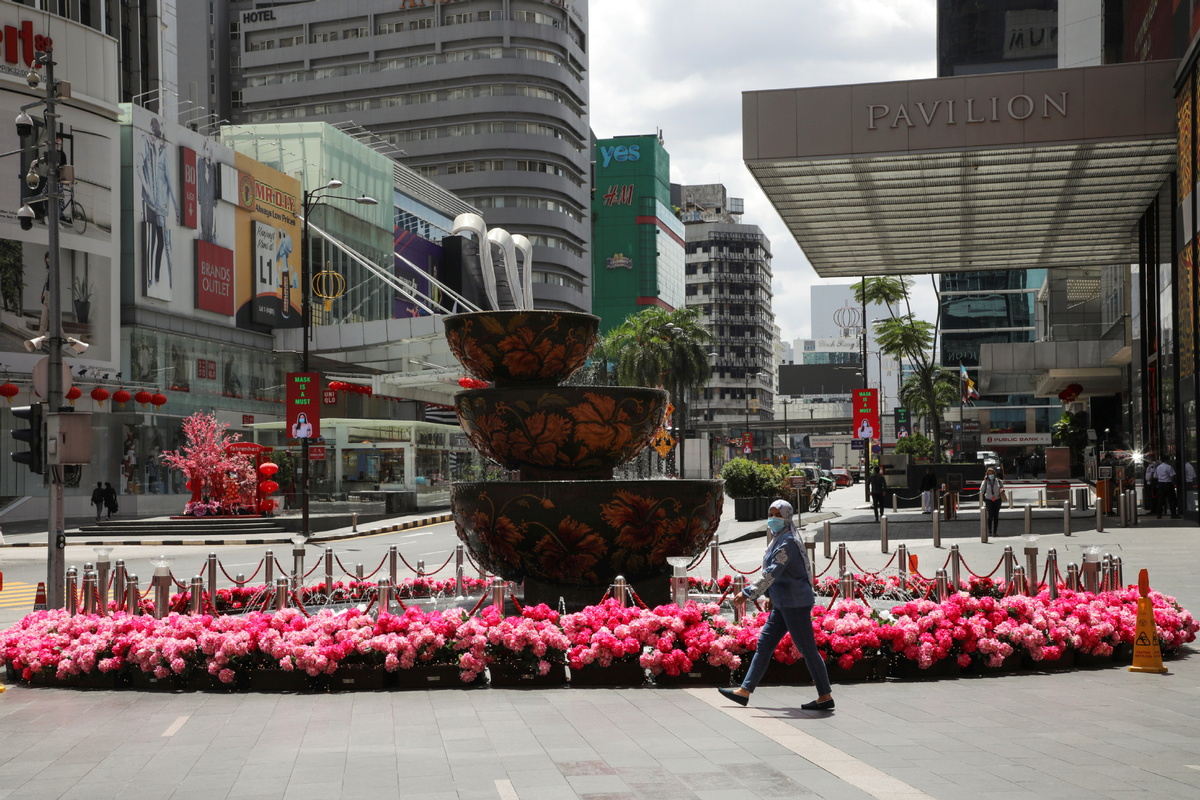Partner assists Malaysia to secure pipeline on jabs


As Malaysia prepares to vaccinate frontline workers, health experts are looking forward to a vaccine partnership with China that will give Malaysia a much-needed shot in the arm.
Khor Swee Kheng, a health systems and policies specialist in Kuala Lumpur, said the Sino-Malaysian vaccine partnership "could be crucial to the Malaysian pandemic response in the short term by providing a crucial public health tool. It can also be crucial in the long term by providing opportunities for domestic production".
"Self-sustainability" in vaccines will strengthen public health while reducing the risk of losing any global race for vaccines, he said.
Prime Minister Muhyiddin Yassin said in a televised address on Thursday that the first phase of the vaccine distribution will start this month, with about 500,000 frontline workers among the first to be inoculated. The daily number of new COVID-19 cases in Malaysia has exceeded 5,000 in recent days, with total infections passing 235,000 on Sunday.
Malaysia has secured vaccines from global pharmaceutical firms including Pfizer and AstraZeneca and the Gamaleya Research Institute of Russia.
Late last month Malaysia started phase-3 clinical trials of a COVID-19 candidate vaccine developed by the Institute of Medical Biology of the Chinese Academy of Medical Sciences. In mid-January, the country's biggest pharmaceutical firm, Pharmaniaga, entered into an agreement with Sinovac of China to buy ready-to-fill vaccines and later to make the vaccine domestically.
Local experts said it is still important for Malaysia to develop its own COVID-19 vaccine over the long term.
Azrul Mohd Khalib, founder and chief executive of the policy research group Galen Centre for Health and Social Policy in Malaysia, said Malaysia's capacity to make its own vaccine will keep it from being dependent on imported supplies.
The Malaysian-Chinese partnership has become particularly important in light of the European Union's export controls on vaccines produced in its territory, with Malaysia likely to be affected, Azrul said.
Alleviating shortages
Nazihah Muhamad Noor, a public health researcher at the Khazanah Research Institute, a think tank in Kuala Lumpur, said that if Malaysia can develop and produce safe and effective vaccines it may be able to alleviate both national and global vaccine supply shortages.
"This may be especially important given the various uncertainties on vaccine distribution, including whether other manufacturers are able to deliver on their promises to supply sufficient doses of vaccines, and also news of vaccine export bans that some countries have announced," Nazihah said.
This could also encourage Malaysia to build its long-term capacity to produce vaccines locally, not just against COVID-19 but against other diseases as well, she said. This will increase the country's ability to respond rapidly to future outbreaks.
Referring to the agreement between Sinovac and Pharmaniaga, Azrul of Galen Centre said that while the pact initially will only allow the Malaysian firm to carry out a fill-and-finish process of the Chinese vaccine, the long-term plan is to develop the capacity to locally manufacture the vaccine under license.
"This would ensure that Malaysia is not forced to depend on the graces and goodwill of other nations to secure vaccine supplies in the future," Azrul said.

































